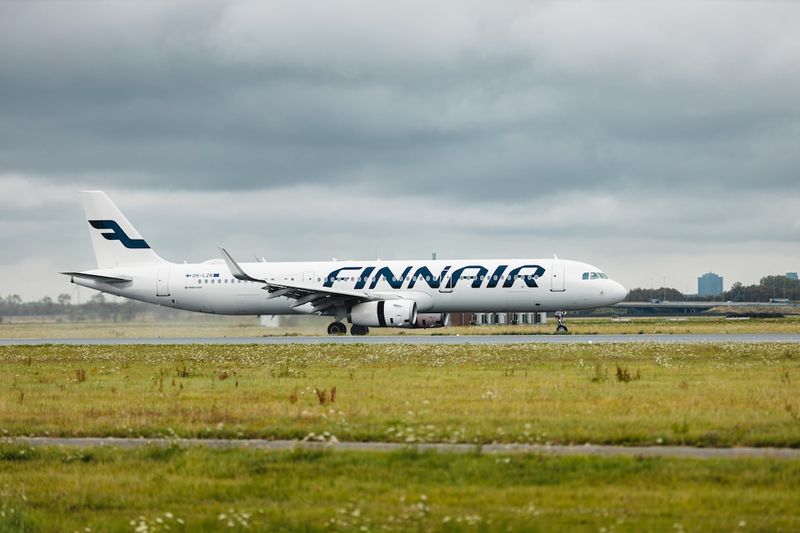Chaos at Bristol Airport as Flights Grounded after A38 Crash
Overview
Dozens of flights were grounded at Bristol Airport on Saturday morning following a crash on the main route to the terminals. The A38 was closed between the two airport roundabouts after a two-vehicle collision, causing delays and disruptions for thousands of passengers. Flights did not resume until 8:00 am, resulting in significant delays and missed connections.
Passenger Experience
Passengers at Bristol Airport expressed frustration and confusion as they were provided with little information regarding the delays. Social media was flooded with complaints from travelers who were left waiting in the departure lounge without any announcements or updates on their flights. The lack of communication and transparency led to a sense of chaos in the airport lounges, as passengers struggled to find answers and make alternative travel arrangements.
Impact on Flights
The delay in flight operations had a domino effect on the rest of the day, resulting in knock-on delays for subsequent departures. Flights scheduled to depart between 6:05 am and 8:00 am were significantly delayed, while those after 8:00 am also experienced delays. It is estimated that over 6,000 passengers were affected by the disruptions caused by the crash.
Longest Delays
Some of the longest delays were experienced by budget airlines, including easyJet, with flights to destinations such as Fuerteventura, Amsterdam, Geneva, Pula (Croatia), Sharm El Sheikh, and Hurghada. These flights were delayed by several hours, necessitating potential adjustments to crew hours and risking the completion of long-haul round-trip flights.
Infrastructure Challenges
The incident at Bristol Airport highlights the inadequate transportation infrastructure surrounding one of the UK’s busiest airports. Despite the airport’s proximity to the Bristol-Exeter railway line, there is no direct train alternative for passengers traveling to and from the airport. This lack of accessible transportation options further compounds the challenges faced by stranded passengers and exacerbates the impact of disruptions.
Editorial: Lessons Learned and Improved Communication
This incident at Bristol Airport serves as a reminder of the importance of clear and timely communication during times of disruption. Passengers, already dealing with the stress of travel, rely on accurate and up-to-date information from airlines and airport authorities to make informed decisions and manage their expectations.
Airport authorities must prioritize effective communication channels, both online and offline, to keep passengers informed about delays, alternative transportation options, and potential rescheduling. Social media platforms like Twitter can be utilized to provide real-time updates and engage with passengers seeking information. Additionally, airport staff and airline representatives should be equipped to effectively communicate with passengers in the airport lounges, providing clarity and prompt assistance.
Furthermore, improved transportation infrastructure around major airports is necessary to mitigate disruptions caused by accidents or road closures. Alternative transportation options, such as direct train connections or shuttle services, should be considered to provide passengers with reliable alternatives in case of emergencies.
Advice: Coping with Airport Disruptions
In light of this incident and the possibility of future disruptions, here are some tips for passengers to cope with airport delays and cancellations:
1. Stay informed: Keep an eye on airline and airport websites, social media accounts, and mobile apps for real-time updates on your flight status. Register for email or text alerts from your airline to receive timely notifications.
2. Plan ahead: Leave extra time for travel to the airport to account for potential delays or detours. Be prepared for security and check-in processes to take longer during peak travel periods.
3. Check alternative transportation options: Research alternative transportation options, such as train or bus services, that can be used as backups in case of airport disruptions. Familiarize yourself with local transportation options in advance.
4. Stay connected: Carry a portable charger for your electronic devices and keep important contact numbers, including your airline’s customer service, readily accessible. Stay connected to the airport’s Wi-Fi network for access to real-time updates.
5. Be patient and flexible: Airport disruptions are unpredictable and often beyond anyone’s control. Stay calm, be patient, and remain flexible with travel plans. Consider alternative routes or airports if available.
By following these suggestions and maintaining a proactive approach, passengers can better navigate airport disruptions and minimize the impact on their travel experience.

<< photo by Tim van der Kuip >>
The image is for illustrative purposes only and does not depict the actual situation.
You might want to read !
- Three Arrested in Connection to Severe Bristol Airport Crash
- Frustration and Fairness: The £75 Drop-off Charge Debate at Bristol Airport
- Take That Presale Tickets Released: Secure Yours Now!
- Navigating the Rush: Expert Insights and Real-Time Updates for Securing Coldplay Tickets
- Eminem’s Epic Surprise: Ed Sheeran’s Fans Erupt as Rap Icon Joins Him Onstage




